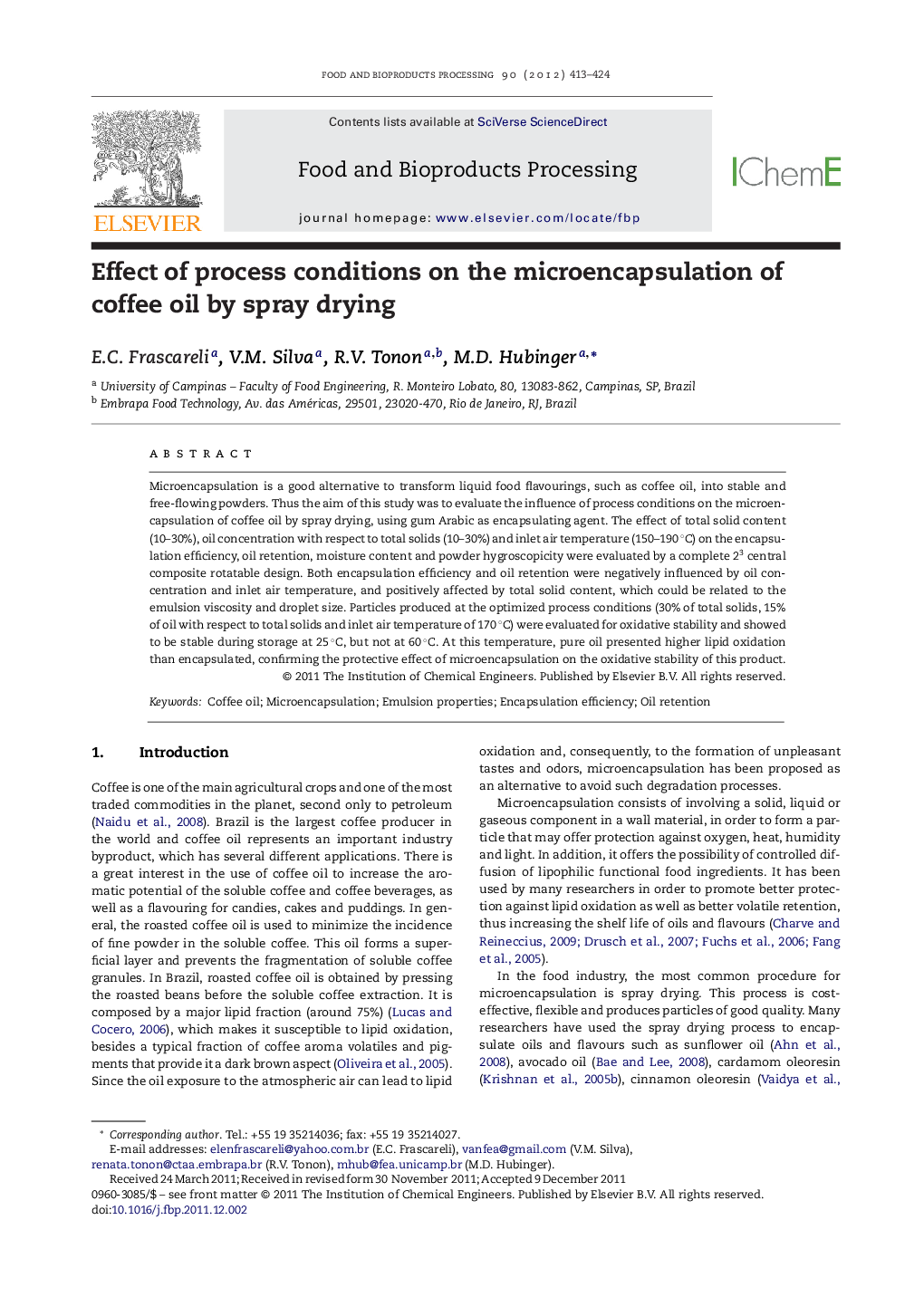| Article ID | Journal | Published Year | Pages | File Type |
|---|---|---|---|---|
| 19056 | Food and Bioproducts Processing | 2012 | 12 Pages |
Microencapsulation is a good alternative to transform liquid food flavourings, such as coffee oil, into stable and free-flowing powders. Thus the aim of this study was to evaluate the influence of process conditions on the microencapsulation of coffee oil by spray drying, using gum Arabic as encapsulating agent. The effect of total solid content (10–30%), oil concentration with respect to total solids (10–30%) and inlet air temperature (150–190 °C) on the encapsulation efficiency, oil retention, moisture content and powder hygroscopicity were evaluated by a complete 23 central composite rotatable design. Both encapsulation efficiency and oil retention were negatively influenced by oil concentration and inlet air temperature, and positively affected by total solid content, which could be related to the emulsion viscosity and droplet size. Particles produced at the optimized process conditions (30% of total solids, 15% of oil with respect to total solids and inlet air temperature of 170 °C) were evaluated for oxidative stability and showed to be stable during storage at 25 °C, but not at 60 °C. At this temperature, pure oil presented higher lipid oxidation than encapsulated, confirming the protective effect of microencapsulation on the oxidative stability of this product.
► Microencapsulation of coffee oil using gum Arabic as wall material was studied. ► Encapsulation efficiency improved at high solid content and low oil concentration. ► Emulsion properties and drying temperature affected the microencapsulation process. ► Microencapsulation by spray drying protected coffee oil against oxidative stability.
